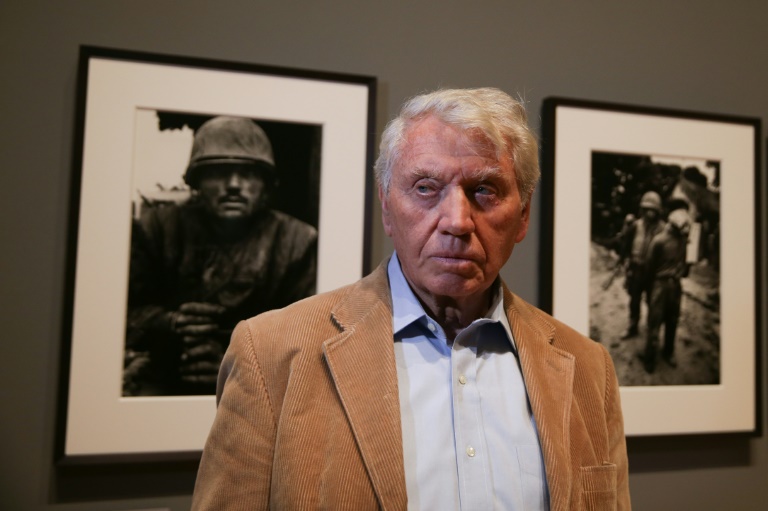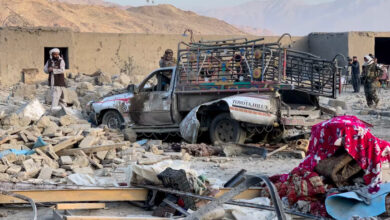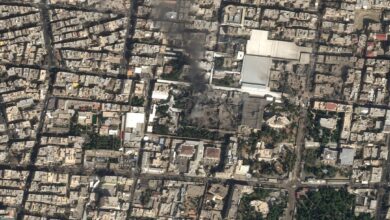
A retrospective of Don McCullin, one of Britain’s greatest living photographers, opens in London on Tuesday, spanning 60 years of war zones and landscapes bursting with the same brooding intensity.
The 250 black and white prints on show at the Tate Britain gallery were all developed by 83-year-old McCullin himself in his darkroom.
Dating back to the late 1950s, they depict conflict zones ranging from Vietnam to Cyprus and Northern Ireland, but also urban and rural scenes in Britain, with a common thread of darkness and emotion running through them.
“If you can’t feel what you’re looking at, then you’re never going to get others to feel anything when they look at your pictures,” McCullin said, in quotes accompanying his pictures.
While primarily known as a photojournalist and a war correspondent, he has also captured the industrial landscapes of northern England and poverty on the streets of London’s East End.
Roads that are now pristine, gentrified and teeming with metropolitan hipsters were, in a series of images from the 1970s, populated by ragged, homeless men gathered in squalor around a makeshift fire.
The newest pictures in the collection, taken last year, are of the deliberate ruination of the ancient site of Palmyra in Syria by Islamic State jihadists.
The exhibition also includes McCullin’s US army helmet, six passports, his watch and compass, light meter and a Nikon camera that took a bullet in 1970 when he was accompanying Cambodian soldiers across a rice field.
He kept the camera to remind him how lucky he had been.
‘Intense experience’
Growing up in north London, McCullin started out photographing a local gang, launching a career as a photojournalist with The Observer and The Sunday Times newspapers.
“It’s a very emotional exhibition,” curator Simon Baker told AFP.
“What you get from Don’s work is a real punch in the face: it’s a really intense experience where you feel as if you are in the middle of that subject.
“Don has always been interested in showing and communicating hardship, misery and people who are in need,” he explained.
“You see that passionate commitment to poverty in the East End of London just as with people struggling in famine in Africa.”
The exhibition, which runs until May 6, is divided into sections devoted to his photography missions, including the 1968 Battle of Hue in Vietnam, the Biafran war in Nigeria, the division of Berlin and the AIDS pandemic in Africa.
It also covers British landscapes, many shot around his home in Somerset, southwest England.
“Even these landscapes have a hint of drama and conflict about them. The skies are often very black and there’s a brooding sense of threat and drama,” said Baker.
Launching the exhibition, McCullin posed for a pack of photographers, some of whom afterwards asked him to sign their copies of his books.
However, the adulation does not fit easily with him.
“I feel guilty about the people I photograph. It’s true, I do,” he said.
“Why should I be celebrated at the cost of other people’s suffering and lives? I don’t sit comfortably with laurels on my head.”




